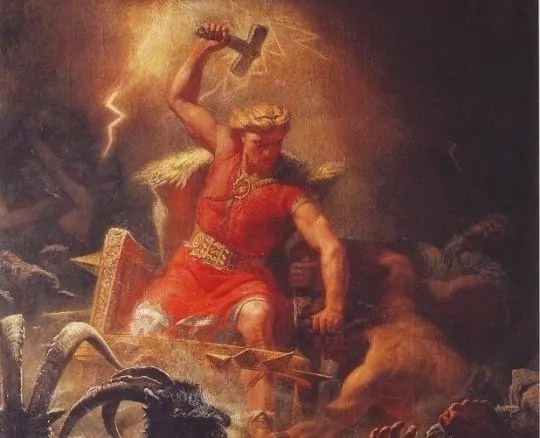

Neopaganism lacks the strength and power of the old pagans; it is weak, depraved, and pampered. Rejecting the truth of the faith, they find themselves still bound to its old ideals of love, mercy, and regeneration. By denying Christ and the church, they pervert the residue of Christian virtue left in western culture. In so doing they leave the truth farther behind than the old pagans did. The woke apostate pagans of today, seeking freedom, transform the very standards of Christ into tools of the Devil. In turning mercy into acceptance, justice into social pandering, and love into lust, they are keeping the forms of the faith, but changing their essence. The pagans of Norse myth or Greek legend were quite different. They knew nothing of the apostasy and the pride of modern man in having broken all the laws of the church. Their gods were like themselves. Insofar as they demonstrated their status in the image of God or their innate knowledge of truth (Romans 1:20) given in natural revelation, they reflected reality. Where they “suppress the truth in unrighteousness” (Romans 1:18), they behaved in accord with their fallen nature. They might have been more bloody than their modern wannabees, yet their metaphysical concept of reality seems to be more in line with truth. Living in God’s universe the ancients picked up some truths of God, needed for survival; in our post-Christian world, those truths are being sawn off into pieces. The only issue being we are cutting down the branch on which our civilization is perching. The fall will be painful, yet it may bring a return to a consistent form and essence—both for the Christian and the pagan—on which truth may be restored. You can either have Zeus’s will to power, or Plato’s transcendent ideals. It’s either Nietzsche or Augustine, Christ or Caesar. In trying for both, the woke neopagans will achieve neither, and thus will collapse both themselves and everything else in their wake.